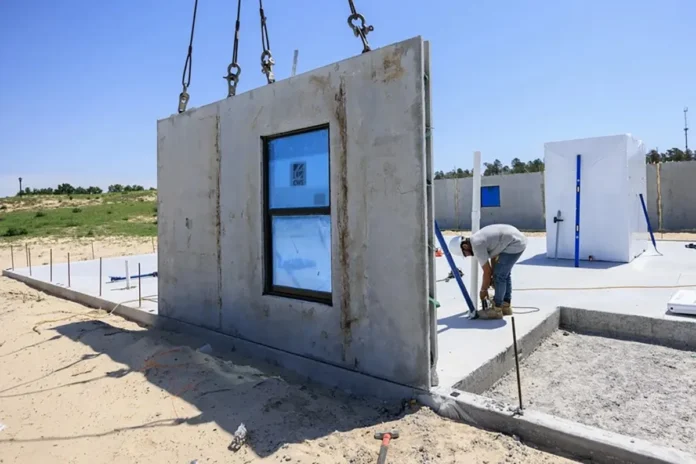Recent immigration raids at construction sites in Florida and other states are shaking up one of the United States’ key industries. In cities like Miami, where 75% of workers are immigrants, concern is growing about the impact of mass detentions.
According to EFE, last week, more than 100 migrants from Mexico, Colombia, Guatemala, Nicaragua, El Salvador, and Honduras were arrested at a construction site in Tallahassee, Florida’s capital. Just two weeks earlier, a similar raid in The Villages left more than two dozen detained.
These operations are not only being replicated in Florida, but are also advancing in states like Louisiana and New York. As a result, many construction workers, mostly Latino, have decided not to show up for work for fear of being deported.
Aarón Pineda, a Honduran with Temporary Protected Status who works in Miami, summed it up this way: “We brought this country forward, but today we are afraid. We’ve never seen anything like this.”
The immigration offensive is part of President Donald Trump’s plan to reach 3,000 deportations per day. This policy directly threatens the construction sector, where 25.7% of workers are immigrants, and more than 14% are undocumented, according to the American Immigration Council.
In Miami, three out of four workers are immigrants. Across Florida, there are more than 430,000 migrant workers in construction, representing nearly two-thirds of the sector.
Ned Murray, an economics expert at the FIU Metropolitan Center who specializes in analyzing demographic, migration, and urban trends in regions like Miami, warned that this industry “would be one of the hardest hit by deportations.”
The United States has a housing shortage of 3.7 million. Demand has grown since the pandemic, when thousands moved to Florida seeking new opportunities. If deportations are carried out, the country could lose up to 1.8 million workers, just when it needs to add at least 454,000 new workers to meet demand, according to the Urban Institute.
The Florida Immigrant Coalition denounced that these raids create a “climate of persecution and fear.” Even large construction companies admit there is no replacement for this workforce. “If we scare away those who do the work under the sun, I don’t know how we’ll continue building,” warned Thomas Kennedy, a consultant at FLIC.






